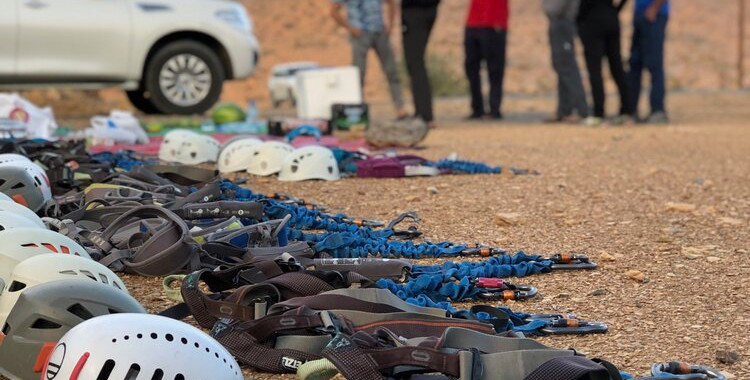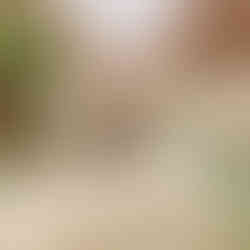Ramadan & Ramadon't: A guide to the Holy Month
- mikaeladosen
- May 29, 2022
- 6 min read

Every year 1.6 billion Muslims worldwide celebrate the holy month of Ramadan. During this time they will practice self-discipline and sacrifice by abstaining from sex, drinking, smoking, and fasting daily from sunrise to sunset. Living in the Middle East during Ramadan can be a frustrating and confusing time for Westerners but it helps to understand the rules, the laws, the customs, and the difference between them.
The story of my first Ramadan living in the Middle East

When I first moved to Bahrain I booked a trip to Muscat, Oman for the first special lib weekend available without realizing it fell during Ramadan or what exactly that would mean.
I wanted to go outdoors and adventure so the idea of no restaurants and no drinking didn’t particularly phase me, what I didn’t consider was the complete decrease in tourism for adventure companies and the difficulty I would face to acquire a guide. I knew that I wanted to see as much as possible and go places off the beaten path but my hectic work schedule wasn’t allowing for much research and to be honest I wasn’t sure I would still be going until literally the day prior…enter Mohammed.
While stalking #Oman hashtags for weekend inspo I came across Mo’s profile and was immediately drawn to his charismatic personality, broad smile, and badass wadi pictures. I reached out to hire him as a guide and it was the beginning of a beautiful friendship. During our weekend road trip, I was exposed to an entirely new perspective, he was my first non-Navy friend in the GCC and probably the most fundamental person in shaping my understanding of Ramadan.

Our trip was filled with nonstop, strenuous action( Check out my Oman itinerary for details) and Mo was dutifully adhering to the rules of Ramadan. Every day he would eat and pray prior to sunrise and abstain from food and water until it was time for iftar at sunset. I tried my best to support him but with the intense heat and constant activity, I was dying for water.
In a world where most of us have everything we want at our fingertips, Ramadan is about being able to empathize with those who are hungry, thirsty, and in need every single day. Iftar - the breaking of fast One of my most memorable experiences was one night on Jebal Shams. We had met up with a large group of friends and celebrated iftar on the mountainside. We started with dates and fresh fruit before indulging in a family-style dinner with lots of meats, loaves of bread, desserts, and juice. We quickly cleaned up and prayers were said before rappelling on the via Ferrata under moonlight and headlamps. At the bottom of the valley, we explored some caves and lounged by a small watering hole, sharing more Arabic coffee, sweets, and fruit. By the time we had made our ascent, it was almost sunrise; we took a short nap and quickly ate before sunrise.
Iftar - breaking of fast
One of my most memorable experiences was one night on Jebal Shams. We had met up with a large group of friends and celebrated iftar on the mountainside. We started with dates and fresh fruit before indulging in a family style dinner with lots of meats, breads, desserts and juice. We quickly cleaned up and prayers were said before rappelling on the via ferrata under moonlight and headlamps. At the bottom of the valley we explored some caves and lounged by a small watering hole, sharing more Arabic coffee, sweets and fruit. By the time we had made our ascent it was almost sunrise; we took a short nap, and quickly ate before the sunrise.
You will notice that the entire country tends to become nocturnal during Ramadan. Gyms, restaurants, souks, and any storefront you can imagine will shift their timings later as people tend to stay awake through the night and nap during the day. This is quite practical for the outdoor adventure enthusiast because this time of year the temps are too hot mid-day anyways.

In Bahrain you will see special promotions for Iftar dinner at most of the fancy hotels; it is served buffet style, usually with live music, and under massive tents in keeping with tradition. I recommend experiencing an Iftar yourself if you get the chance, I have only been to the one (at Gallery 21) because of the Covid shut down in 2020 but I hope to check out a few more (like the Ritz) before moving next year.
Alcohol consumption is prohibited during Ramadan and Iftars are dry events; very few venues will actually serve drinks during the entire month (British club/ Rugby club) and the base package store is the only place open to buy wholesale.
Speaking of Prohibited… It is against the law to publicly consume food and drinks from sunrise to sunset during Ramadan. Yes, even water and no you can’t chew gum. There are stories of arrests being made but I have never personally heard of this. Some of the fancy hotels and restaurants will continue to serve food by creating a giant divider to shield people from sight- usually, a list of all venues open during the daytime will float around in the first week or so. I am guilty of accidentally drinking my water in public before remembering but I try my best. Talabat is still available, with some restaurants changing their hours and everything is still business as normal on the BASE.
Iftar Boxes/ Charity: You may notice groups of people handing out boxes at traffic lights, walking paths, mosques, or, other heavily congested areas around sunset. Charity is a major focal point of Ramadan so companies and families assemble boxes of food to distribute when it is time to break their fast.
What to wear:

Packing for an adventure trip is always intimidating, but this was even more difficult as I wanted to be both respectful and also practical. Most of the hikes we did were very secluded. In the beginning, I would wear a simple cover on my shoulders and then remove it away from the small (generally more conservative) villages. I kept black yoga pants on over my swimsuit even in the water, since we were constantly climbing and sliding down large rocks. Mohammed would wear a full-length black spandex top and bottom under his shirt and shorts. When we were in town or at any of the forts Mo wore his dishdashah (referred to as thoeb in Bahrain.) He invited me to borrow a spare one; I did at a few forts, and many people would look confused and smile at us because it was a silly thing to see a girl in man’s clothing but it was all in good fun. By contrast, that same day we saw a girl wearing daisy dukes on a village tour- “What do you think of that?” I asked. Mohammed basically said that while he would never say anything, it is appreciated when people try to show their respect by covering up. Obviously, Mohammed is a chill dude, so I assume there are people not quite as easygoing.

Imagine going to church in your best hoe-fit… you probably wouldn’t. It’s kinda like that but for a month. Most people won’t say anything but they might internally roll their eyes at you.


If I’m not playing dress-up then I will generally wear a longer skirt, loose linen pants, or cargo pants on the bottom, paired with a light cover-up over the top. Because of the climate, my wardrobe is normally tank tops and tee shirts so in order to avoid spending money on clothes I usually wear a light long sleeve button-up over my normal attire. Leave a versatile coverup in your car during Ramadan for all of those just in case moments arise…like going to the gym or stopping at the market. Full disclosure- There are still pockets of ultra-conservative people who may take more offense to indecent dress regardless of Ramadan. If you don’t want to feel uncomfortable dress appropriately if you venture into places like: older villages, black flag areas (don’t go here anyways), or some of the low income neighborhoods for migrant workers. I was hissed at by a man once when I was quickly jumping out of my car in yoga pants and a tank top to pick up some photos. You can usually recognize areas like this because the women are fully covered or not present at all.
How to greet someone who is fasting:

Ramadan mubarak = Blessed Ramadan Ramadan kareem = Happy / generous Ramadan Iftar shahy = Have a good iftar Mubarak aleik al shahr = May you get the blessings of the month Kil aam wa inta fee kheir = May each year pass and you be well

PC @AWESOMEDON , GO CHECK































Comments